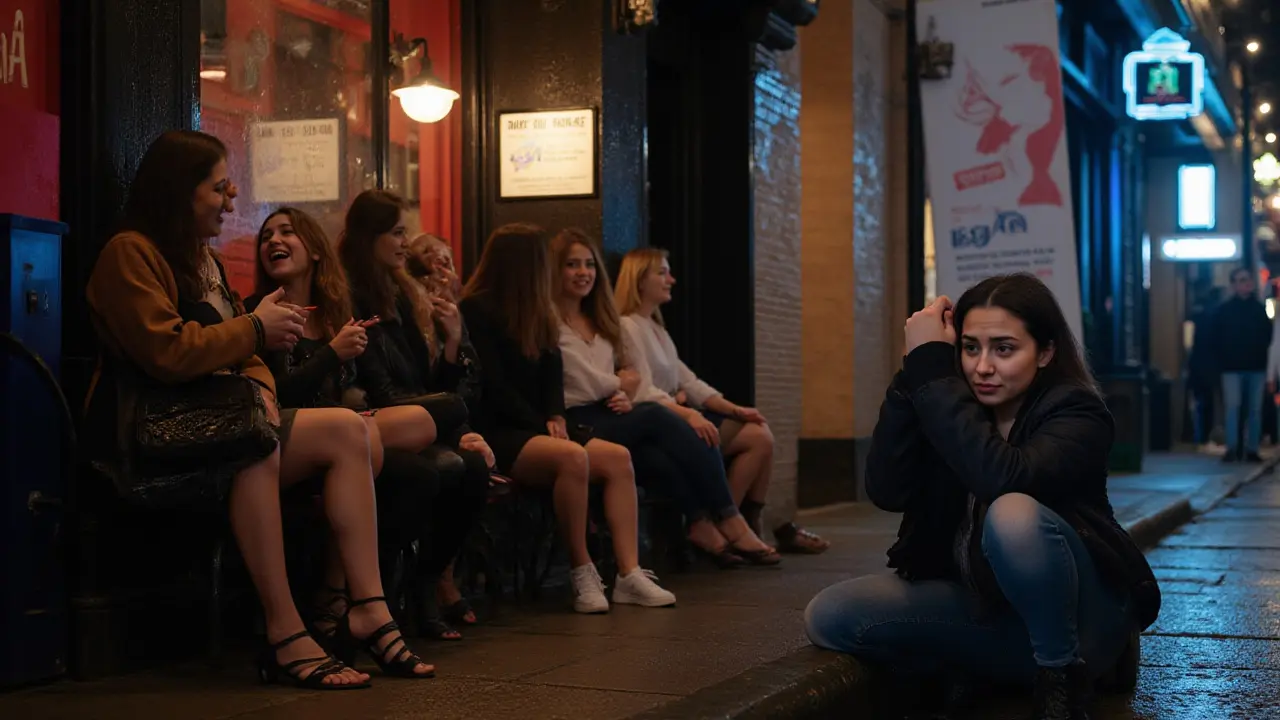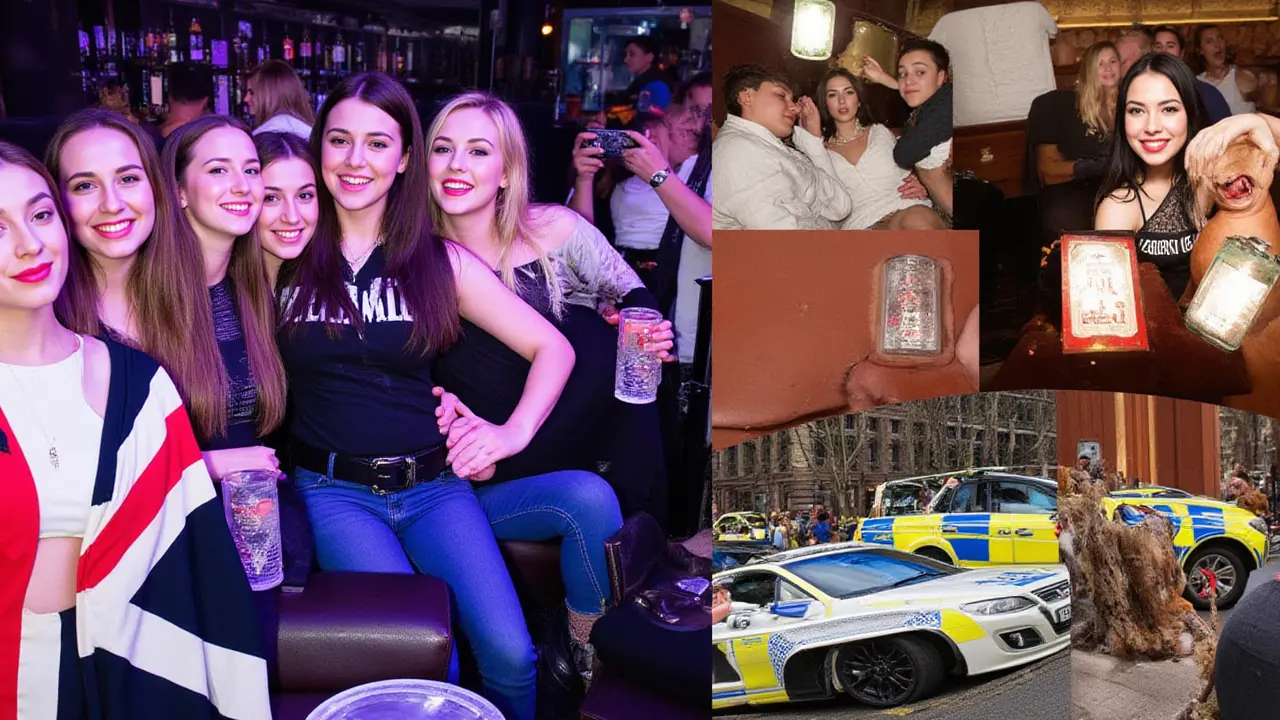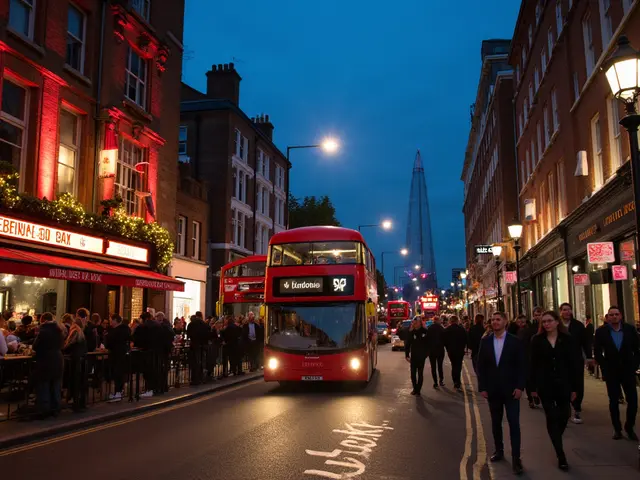The dark, smoky room pulses with sound. Bodies move together, a thousand stories tangled under club lights. Some will say it’s freedom, a release from boring routines. Others warn it’s nothing short of chaos—a place where good sense goes to die along with your eardrums. But why’s clubbing so polarizing? If you’ve ever tried to explain why you love or hate a night out, you already know this debate gets people fired up fast. Maybe you’re drawn to the energy, or maybe you’re worried about the more dangerous side of things. Either way, the world keeps packing into clubs, pandemic or not, and the party (and controversy) shows no sign of slowing down.
Why Clubbing Feels So Good (and Sometimes Actually Is)
Start with the obvious: clubs were built for fun. There’s nothing like the feeling of bass hitting your chest, laser lights slicing through the air, and everyone moving to the same beat. It’s not just about dancing—clubbing is social glue. A 2023 global survey from Statista put nightclub attendance at pre-pandemic highs, with people aged 18-34 making up the biggest slice. What’s driving them? Most put “to relax after work” and “meet new people” at the top of the list.
Every night out is a mix of sound, color, and energy you just can’t get from streaming music at home. Some psychologists now say dancing with groups can literally change your brain—releasing endorphins and serotonin, the chemicals behind joy, intimacy, and stress relief. Clubs are one of the last places where you can approach a stranger, strike up a conversation, and maybe walk away with a date (or at least a few good stories). Researchers at Oxford University even found synchronized dancing builds trust between strangers, which explains why you and random club buddies become best friends at 2 a.m.
Socializing isn’t just a buzzword here, either. Loneliness rates have hit record highs worldwide (Gallup found 1 in 4 adults felt "very lonely" at least once a week in 2024), and clubbing gives people a reason to get out, dress up, and see actual humans—something that’s been proven to cut around depression and burnout. It can boost your self-confidence by pushing comfort zones and letting you shed your weekday identity.
Some regulars say clubbing is a workout in disguise. Fitbit users tracked during nights out clocked anywhere from 7,000 to 13,000 steps—more than most gym sessions. Dancing for three hours can torch 400 to 600 calories. The sweat and movement also lower stress hormones, according to a British Journal of Sports Medicine study. Dance floors aren’t the next health craze, sure, but they’re a lot more fun than slogging through a treadmill session.
Clubbing shapes culture, too. DJs and new music trends are born in clubs, then ripple out to radio, TikTok, and your Spotify top ten. Club fashion sets streets ablaze with new trends (remember neon from the 2010s?), and club slang seeps into everyday conversation. There’s economic impact as well: nightlife tourism brings millions to cities like Berlin, Las Vegas, and Seoul every year. In 2023, New York’s club scene alone added over $2 billion to the local economy, according to City Hall data.
Sure, critics dismiss it all as a waste of time and money, but thousands of clubs around the world aren’t empty every weekend by accident. People keep coming back because clubbing scratches a real human itch. That doesn’t mean it’s all positive, though—the other side is way messier.

The Not-So-Great Side of Clubbing: Risks, Costs, and Reality Checks
For every legend of a great night, there’s an equally dramatic horror story. Clubbing, let’s be honest, can get dangerous—sometimes fast. Noise is problem number one: hearing loss begins at about 85 decibels, and most clubs blast music well over 100. The World Health Organization put out a warning in 2024, saying frequent clubbing can add up to permanent ringing ears in as little as a year for heavy partiers. Unless you’re rocking earplugs, you’re gambling with your hearing every time you go out.
Alcohol comes with its own mess. With cheap drinks, shots on the bar, and peer pressure, it’s easy to overdo it. The CDC’s research in 2024 found clubbers are more than three times as likely to binge-drink compared to people who stick to bars or casual dining spots. Hangovers are the best-case scenario; worst is walks home alone, risky decisions, or even winding up in hospital thanks to spiked drinks. Substances aren’t always limited to alcohol, either. Clubs sometimes attract drug use, which can mean anything from a quick high to addiction, fights, and crime outside at closing time.
And then there’s safety, the kind your mom warned you about, and for good reason. Large crowds, late hours, and crowded dance floors are tempting to pickpockets and make it easy for things to slip out of sight. Women and LGBTQ+ folks are especially at risk—survey data from 2023 reported that 62% of female clubbers had experienced harassment or unwanted touching. Cameras and bouncers only do so much. You really have to watch out for yourself and your friends—Uber home, stay in groups, never accept drinks from strangers, and know who’s in your crew before the night starts.
There’s another side of clubbing few talk about: the burnout. Not the cool Instagram version, but the one where three big weekends in a row leave you exhausted, broke, and possibly picking up a cold. The average club ticket costs about $30-$75, depending on city and DJ, but you can easily double that with drinks, cabs, and cover charges. Do that twice a month, and you’re waving goodbye to over $2,000 a year, according to a 2024 WalletHub report.
If you’re going out to escape something—stress, breakups, loneliness—clubbing can quickly turn into a bad habit instead of a fun distraction. Some regulars admit they start feeling worse, not better, after headlining nights out, especially if they’re drinking through problems or hoping the music will keep serious stuff at bay. Studies from King's College London found people who went clubbing to cope with hard emotions were twice as likely to report feeling low or anxious during the week. That’s not the vibe you want from what’s supposed to be a good time.
Let’s put it all together with a quick look at the facts:
| Fact | Data/Stat |
|---|---|
| Average club decibel level | 98-107 dB |
| Steps during a night out | 7,000-13,000 |
| Chance of binge drinking at a club | 3x higher than bars |
| Women reporting harassment | 62% |
| Annual club spend (2x/month) | $2,000+ |
So, yes—clubbing can be fun, freeing, even healthy in small doses. But the headaches, literal and financial, add up fast if you aren’t careful.

How to Make Clubbing Work for You: Smart Tips and Fresh Thinking
If you love the rush of nightlife but want to avoid the drama, you have to club smarter. First rule: know what you want from the night. Are you there for the music? To dance without caring what anyone thinks? Or just chasing that after-work “forget everything” high? If you pick your reason upfront, you’re less likely to get swept into stuff you’ll regret later. Some longtime clubbers say having a “crew code”—text check-ins, pre-set meeting spots, and Uber plans—cuts stress and makes things safer for everyone.
When it comes to substances, set limits before you go. Decide your drink max (and stick to it), rotate water in every round, and look up the club’s reviews to see if people mention sketchy stuff. Bring earplugs: you can snag good ones for less than $20, and you’ll be glad when you’re not stuck with ringing ears after a single night out. Try sober clubbing once—many clubs run alcohol-free nights now, and you’ll see if you really like the vibe or just the buzz.
If you get anxious or overwhelmed in crowds, scope out clubs with outdoor areas or chill lounges. Arrive early to avoid long lines and get your bearings before the dance floor fills up. Some apps like Clubbable or Discotech let you scope what DJs are playing, entrance costs, and crowd vibes in real time—no more guessing if the place is your scene. For first-timers, smaller venues are often safer and friendlier than giant super-clubs where you’re just another face in the crowd.
About safety—it’s non-negotiable. Keep an eye on your drink, don’t let your phone die, and have a backup taxi or rideshare option saved. If you’re a woman or part of a marginalized group, check which clubs are rated as safe and inclusive. Many cities now have bystander programs to train staff, and some clubs use code words (“Ask for Angela” schemes) to get help from staff discreetly.
If you’re tempted to blow your entire paycheck every Friday, set a budget. Pre-party at home with friends, take advantage of guest lists, or check out weeknight events for cheaper admission. Remember, clubbing doesn’t have to be a weekly thing—treating it as a special occasion keeps it exciting and gives your body and wallet time to bounce back.
Clubbing is whatever you make it out to be. Some find real life lessons in the rhythm of the floor, others leave after two songs swearing never again. The crowd, the music, the drama—all mashed together in a space where you choose how much you play along. If you roll with a bit of common sense (and maybe some earplugs), you get all the highs, with fewer lows. Don’t believe the full-on hype or doom, but don’t ignore the shade, either. The truth sits right in the middle, just like most of what’s worth experiencing in life.








10 Comments
Alex Bor
July 30, 2025 AT 14:53I've always found the clubbing culture fascinating but also a bit perplexing. On one side, it’s clearly a hub for social interaction and a space to let loose after a stressful week. But on the flip side, the noise, crowding, and potential for risky behavior can’t be overlooked. Does the fun actually outweigh the cons when you consider the impact on one’s health and safety?
Moreover, the sometimes excessive alcohol consumption and late hours might have longer-term effects than people realize. I mean, sure, you get to dance and meet people, but what about sleep deprivation and potential exposure to unsafe situations? So, it seems like clubbing is this double-edged sword — awesome but risky.
What do you all think? Is clubbing just a necessary social experience or an avoidable lifestyle hazard?
Andrew Young
July 30, 2025 AT 16:00Honestly, I find the whole glamorization of clubbing to be pretty overrated. 😒 Everyone acts like it's some epic social ritual, but really, it's just an excuse to escape responsibility and indulge in hedonism. You think dancing surrounded by loud music and flashing lights is meaningful? Nah, it’s often shallow and destructive.
People talk about 'letting loose' and 'having fun,' but they often ignore the darker side: the toxic environments, substance abuse, and sometimes outright dangerous encounters. It's like a superficial distraction from real growth and connection. 🙄
I'd argue that clubbing promotes escapism rather than genuine socialization. But hey, that's just my take. Anyone else tired of the hype?
Michelle Loreto
July 30, 2025 AT 17:06Oh wow, this is such an interesting topic with so many nuances to consider! 💃🌟 Nightlife, especially clubbing, can be a vibrant nexus for sociocultural exchange, a pulsating dance floor where people transcend everyday stressors and rejuvenate their spirits through kinetic communion. It’s a beautifully chaotic ecosystem born out of collective euphoria.
That said, we mustn’t gloss over the embedded risk vectors—like noise-induced hearing loss, overconsumption of alcohol, and personal safety concerns. Yet, when approached mindfully and with an awareness of one’s boundaries, clubbing can serve as a powerful antidote to social isolation and an incubator for friendships and self-expression.
I've always encouraged colleagues and mentees to strike that delicate balance: embrace the electrifying ambience but stay attuned to your well-being. It's about leveraging that dynamic synergy of energy and safety to create meaningful nightlife experiences!
Jamie Farquharson
July 30, 2025 AT 18:13i totally get how clubbing is a mixed bag, honestly. most times it's just chill vibes, good music, and meeting cool people. but yeah, it can get overwhelming and sometimes sketchy, especially if u r not paying attention to your environment or who u r with.
some of my best memories are from nights out, but also some nights just ended with me feeling drained or anxious cuz of the crowd or loud noise. so i think it boils down to knowing your limits and picking the right place to go.
definitely not for everyone tho, and that’s okay too.
Graeme Edwards
July 30, 2025 AT 19:20Well, clubbing is an interesting social construct with various psychological dynamics at play. 🍸 The environment is designed to stimulate dopamine release through music, lights, and social cues.
Yet, the health ramifications such as disrupted circadian rhythms, potential auditory damage, and increased exposure to risk behaviors must be factored in. The question of whether this activity is beneficial or detrimental wholly depends on individual moderation and contextual factors.
From a biological standpoint, brief periodic engagement might contribute positively to one's social well-being, but chronic nightlife indulgence could have adverse effects on health and cognitive function. Not to mention, the economic implications — clubbing isn’t cheap either. Personally, I prefer less stimulating social environments but I get why many enjoy it. 🤷♂️
jessica zhao
July 30, 2025 AT 20:26Philosophically speaking, clubbing represents an intriguing paradox: the collective yet transient nature of human connection and joy. It’s an ephemeral sanctuary where individuals surrender to rhythm and community, momentarily dissolving the rigid structures of daily life.
Yet this very ephemerality posits questions on authenticity and depth of connection formed in such settings. Is the camaraderie forged under strobe lights deeply transformative or merely surface-level zeal?
Moreover, the ethical considerations about substance use and overall well-being merit contemplation. However, denying the cultural and emotional vitality that nightlife fosters would be reductive. It's a dance between exhilaration and caution, freedom and responsibility, a metaphor for modern existence perhaps.
Rajan Chaubey
July 30, 2025 AT 21:33In my cultural experience, clubbing does have its pros but the cons seem to outweigh them significantly. The rampant use of intoxicants and lack of proper safety protocols can lead to serious harm. Nightlife often becomes a breeding ground for reckless behaviors under peer pressure.
Also, from a societal perspective, the glorification of such nightlife activities sometimes overshadows more meaningful communal engagements. While it can be intoxicating and liberating temporarily, the long-term psychological and physical toll is seldom discussed openly.
Therefore, I believe there needs to be a responsible framework to educate and protect people engaging in nightlife rather than blindly promoting it as pure escapism. Interests of health and cultural preservation must be balanced.
Whitby Burkhart
July 30, 2025 AT 22:40Major grammar nitpick but, really, the post frames clubbing in an almost binary way — good or bad — when it’s so much more nuanced. It’s a spectrum. 🕺
Sure, clubs are loud and chaotic, often with less-than-ideal hygiene or safety standards, but they are also places of raw human emotion, creativity, and spontaneous socialization. You don’t always get that in everyday environments. It’s just important to take pragmatic precautions like watching your drink and having a buddy system.
Overall, clubbing is what you make of it. Be smart, stay aware, and you can have a blast without being foolish.
Julia McCarthy
July 30, 2025 AT 23:46Reading through everyone’s perspectives truly highlights the multifaceted nature of clubbing! 🌈 It’s not just about the potential negatives or positives alone, but the intersection of personal intention, community culture, and environmental factors.
For those seeking connection and creative expression, nightlife can be a sanctuary of vibrant human energy, a kind of modern-day ritual to destress and belong. Yet, it’s crucial to cultivate a mindful practice of setting boundaries and prioritizing safety — both physical and emotional. Being kind to oneself even within the chaos is key.
Ultimately, our relationship to nightlife can be a reflection of deeper values surrounding joy, health, and social belonging—so embracing that awareness can enhance the experience remarkably.
Piotr Williams
July 31, 2025 AT 00:53Ugh, clubbing? Meh, meh meh. Just noise, overpriced drinks, and sweaty crowds. What’s the point? I’m all for having fun but is it really worth the headache, the sore feet, and the hangover? Seems like a waste of energy.
Plus, safety often takes the backseat. How many stories have we heard about mishaps or worse? I just don’t see the charm. Better to chill in a quiet spot, talk with friends, or do something productive for a change.
Maybe I'm too old-fashioned but yeah, clubbing feels more like trouble wrapped in a shiny package to me.